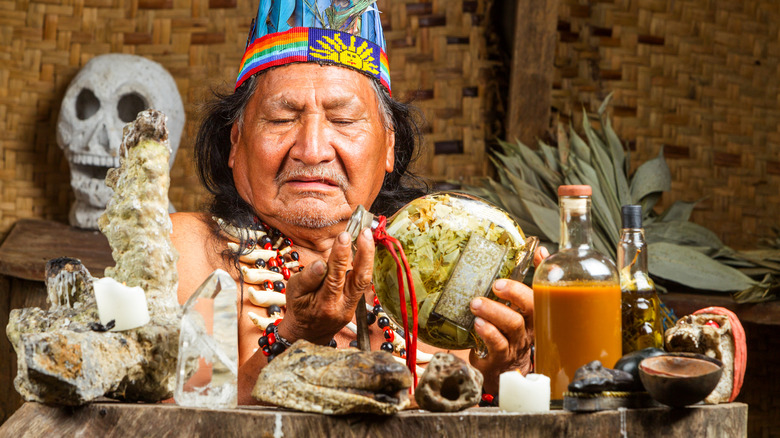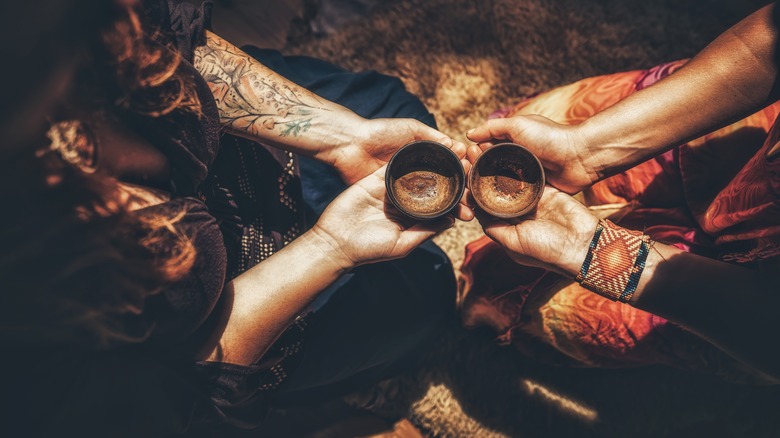Why You Should Think Twice Before Trying Ayahuasca
Ayahuasca is a psychedelic substance made by brewing the stalks of the ayahuasca vine and chacruna shrub leaves into a strong tea (per WebMD). The traditional plant-based medicine's name translates as "vine of the soul" in Quechua, the native language of Peru. According to the Ayahuasca Foundation, the people of Peru and at least 100 other tribes in the Amazon have used ayahuasca as a spiritual and ceremonial tool for perhaps thousands of years. Today, people from all over the world travel to Central and South America to participate in ceremonies led by trained shamans, called curanderos or healers, for spiritual enlightenment and mental and emotional healing (via Healthline).
But while many claim to benefit from ayahuasca's healing insights, the experience may be intense, especially when releasing emotional and mental trauma or confronting fears and anxiety. It can be overwhelming for some and is known to have several side effects many would consider unpleasant. According to WebMD, the psychotropic compounds of ayahuasca include dimethyltryptamine (DMT) and monoamine oxidase inhibitors (MAOIs).
Since ayahuasca is a plant-based drug, the Alcohol and Drug Foundation (ADF) notes that there are always risks and potential side effects when taking any mood-altering or mind-altering substance. Ayahuasca, like any drug, may affect people differently depending on several factors, including weight, size, state of mind, experience with psychoactive compounds, how strong it is, the setting you're in, and the company you surround yourself with during the ceremony.
Side effects of ayahuasca
Unfortunately, a common side effect of consuming ayahuasca is vomiting. In one survey, published in PLOS Global Public Health, almost 70% of respondents reported throwing up after consuming ayahuasca, with some claiming other physical effects, including headache and exhaustion. In fact, 2.3% of the participants said they sought medical attention afterward. However, physical side effects were generally reported as mild and were often related to individual factors beyond ayahuasca itself or with using ayahuasca casually (per Neuroscience News). Nearly 60% of survey respondents did report experiencing "adverse mental health effects" in the weeks or months after the ayahuasca experience was over. While most felt it benefitted their personal growth, 12% reported getting mental health assistance afterward.
The Ayahuasca Foundation says ayahuasca is considered sacred medicine and is best used under professional supervision. With that being said, experts at ADF advise against using ayahuasca alone or mixing it with alcohol or other drugs because it can be dangerous. Some may even experience negative or frightening thoughts, emotions, or hallucinations with any psychedelic substance, including ayahuasca. However, a 2020 study in Nature found that when used properly, ayahuasca has the potential to relieve depression and other mental health issues and that more studies into its benefits should be conducted. "These experiences may be understood or interpreted differently in a traditional or ritual context, where they may be seen as lessons and part of a spiritual or healing journey rather than wholly negative" (per ADF).


